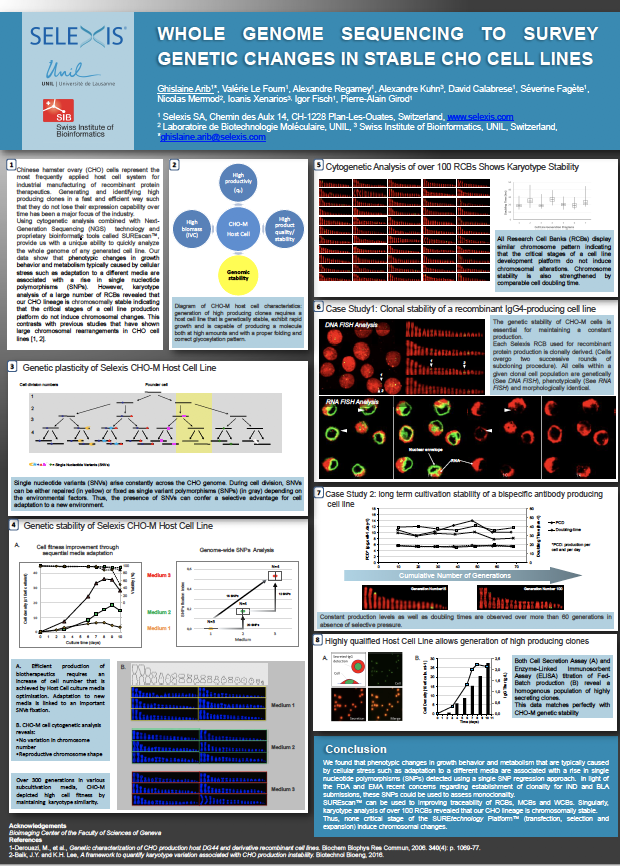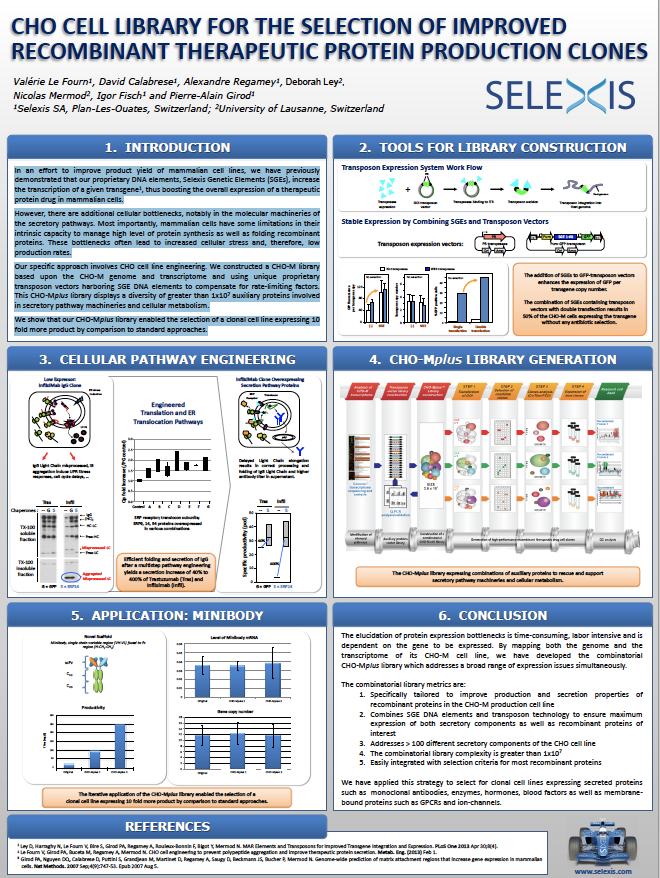Chinese hamster ovary (CHO) cells represent the most frequently applied host cell system for industrial manufacturing of recombinant protein therapeutics. Generating and identifying high producing clones in a fast and efficient way such that they do not lose their expression capability over time has been a major focus of the industry.
Using cytogentic analysis combined with next-generation sequencing technology and proprietary bioinformatic tools called SUREscan, provide us with a unique ability to quickly analyze the whole genome of any generated cell line. Our data show that phenotypic changes in growth behavior and metabolism typically cuased by cellular stress such as adaptation to a different media are associated with a rise in single nucleotide polymorphisms (SNPs). However, karyotype analysis of a large number of research cell banks (RCBs) revealed our CHO lineage is chromosomally stable indicating that the critical stages of a call line production platform do not induce chromosomalchanges. This contrasts with previous studies that have sown large chromosomal rearrangements in CHO cell lines.



